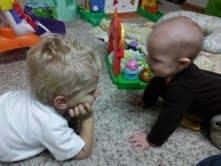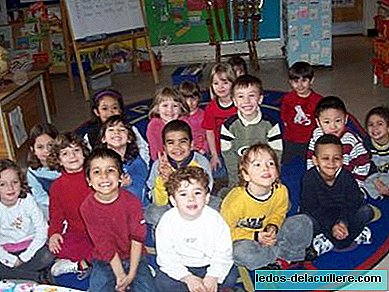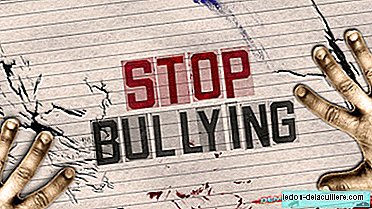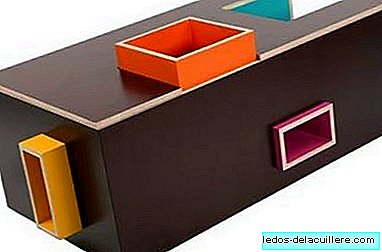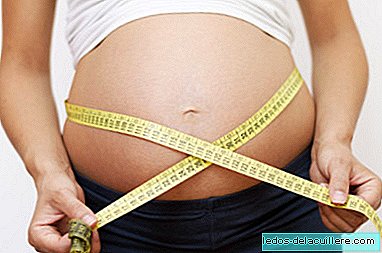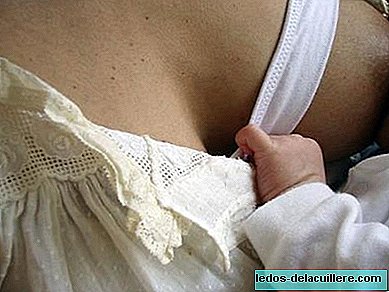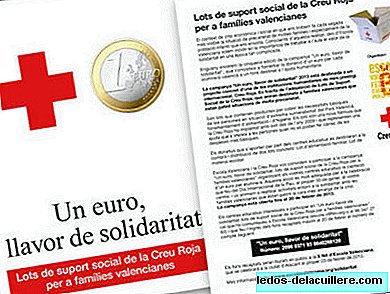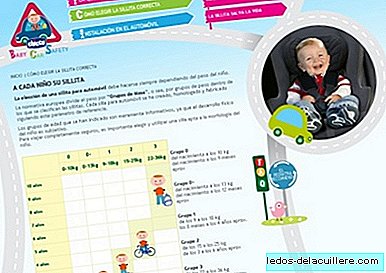When a couple has just had a baby and asks about the amount their child has to eat, the answer is quite easy: what you want. That means that it must be fed on demand, so that it is the baby who decides when to eat, when to stop doing it and also decides how much to eat based on his hunger and satiety.
However, there are times when despite doing it on demand we can be giving them more, and there are times when the baby could be eating little: How to know if a newborn is eating little or if he eats too much?
Why are they fed on demand?
This is done because it has been seen that it is the best way for babies to grow up healthy and gain weight without problems, since often, when parents intervene, we do it to feed them "less." That is, we try to space the shots so that the baby can endure more time without eating and thus eat more in each shot and be less dependent.
We also do it because someone tells us that it cannot be on demand whenever the child wants, and that it has to be every three hours (it is most usual, say three). This, of course, does not always work, and many babies cry because they are hungry; in fact, many lactations have failed precisely to wait and wait at three hours, to think that the baby cries for something else, and in the end to give a bottle to supplement a lactation that could have worked if it had been on demand.
How to know if you are eating little?
The fact is that if we are not respecting the demand (if we have set a more spaced schedule than the baby would do), or if there is any problem in sucking or holding, or at the production level, the baby could be eating little.
To know if a baby eats little what is done is look at the scale, of course, because you have to be earning about 120-150 grams per week at first. However, if we do not have a scale, or to know if we need to weigh you, there are other signs that may be useful if we have that feeling (and that could take us to the pediatrician to consult him about the weight, under the suspicion that he is eating little) . According to the American Academy of Pediatrics (AAP) they would be the following:
- If the baby is breastfeeding, that after 10 minutes or even before he falls asleep.
- If you are wetting less than four diapers a day.
- Your skin is still wrinkled after the first week.
- After three weeks he has not yet had a round face.
- After taking a shot and falling asleep, ask again right away, as if you were still very hungry.
- It seems that it is getting more yellow, instead of less, in the first week of life.
As I say, they are warning signs that would have to take us to the pediatrician's office to see if there is any problem or if on the contrary everything is going well. There, the baby is weighed, compared with the previous weight, and if the problem is confirmed, look for the causes that the baby is eating little to solve them.
How to know if you are eating too much?
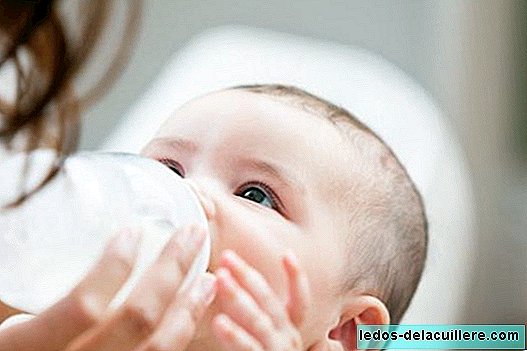
Sometimes the opposite happens, that the baby eats too much. Normally this only happens with bottle children because giving more is as easy as preparing more and forcing a little. In fact, if a newborn has to drink between 30 and 60 ml of artificial milk, they can calmly prepare 180 ml and put them in the bottle to force him to eat them (the baby will cost hours, but in the end it will not effortlessly ... an effort that will be less and less as we get used to always fill the stomach to the top).
Therefore it is recommended that bottle children also eat on demand and that the size of the bottle is not very large, or what is the same, that we prepare the right amount that we believe will be eaten, or if we prepare more, that never force the baby to follow a little more not even to finish it (although it has very little left).
In infants who are breastfeeding it never happens, because it is very difficult to overfeed a breast-fed baby (that's why they are given on demand). However, in babies who do not tolerate separation well it could happen. I speak, for example, of a baby who eats, stays satiated, sleeps on the tit, the mother leaves him in the crib or crib, and wakes up minutes later because he realizes that he is alone. At that time the mother may think that she cries because she has been hungry, she can breastfeed again and the child takes it again and eats simply because the suction calms her (the problem in this case will be the crib or cradle, that is, the separation).
Again according to the AAP, the signs that a baby is eating too much They are:
- If the bottle is given, the baby takes more than 120 to 180 ml per dose.
- After feeding, the baby vomits most or all of what he has ingested.
- The bowel movements are soft and watery and make eight or more bowel movements a day (breastfed could even do more).
The weight will confirm the suspicion, obviously, because the baby will have gained a lot of weight (otherwise it will be necessary to rule out milk allergy, since the symptoms are very similar). Then the pediatrician will recommend to the parents who bottle feed that decrease the amount per dose and, if necessary, feed it more frequently (instead of 120-180 every 3-4 hours, take 60-90 every 2-3 hours, as requested by the baby).
In the case of breastfed babies, the recommendation will be different: continue feeding on demand, but trying not to leave the baby alone to avoid those awakenings. One option is to try to have more time in your arms so that, at the time of passing it to the crib, you are deeply asleep. Another option is to breastfeed with a light shawl or blanket (which does not barely heat him) so that his arms and chest can be wrapped a little (legs always free), which could help him not to leave it in the crib. wake up And another option would be to port it: directly, don't separate it from mom's body, so that she can get up and have both hands free while the baby keeps sleeping with her. If he cries, always give him a tit, but carrying him on top is more difficult for him to wake up because he feels lonely.
Photos | iStock
In Babies and more | A study reveals why babies fed with adapted formulas get more fat, When the baby who drinks breast milk gets too fat (and they even tell you to switch to artificial milk), Children take more protein than recommended, what can we change?


